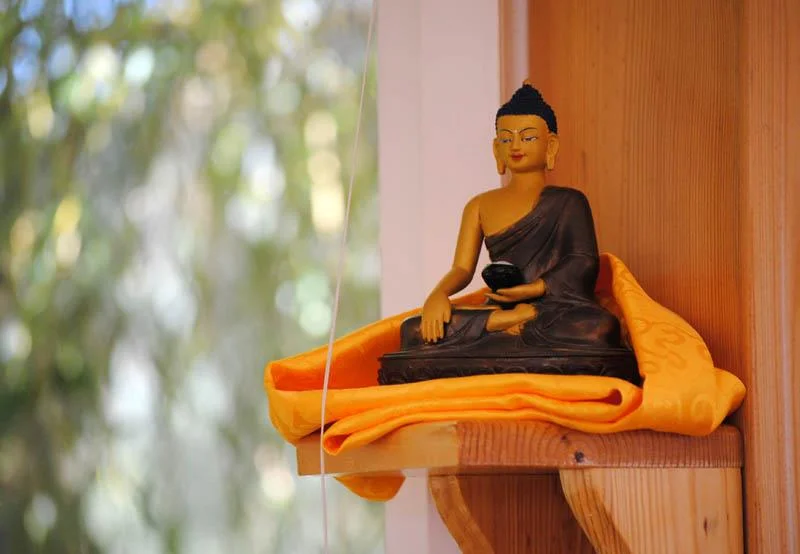
Questions about sexuality shouldn’t be an issue among Buddhist monastics because of what you noted above: celibacy. However, shouldn’t be doesn’t mean it isn’t.
In point of fact, the Buddha did talk about Gods (I’ll buck convention here if the editor will allow it)—the Devas that populate different realms of existence.
As suicide harms the victim as well as those left behind, it is clearly an act with significant consequences.
It's important to note that people in his time really saw value in leaving the household life at some point in their lives. A number of kings did so late in life.
Ironically, your question about beginning resources is one of the most challenging to address.
The use of, and beliefs about, short recitations are universal in the traditional forms of Buddhism. Popularly known as mantras, the term, derived from Sanskrit, breaks down into two parts: man means to think; and tra is a suffix that designates a tool or instrument. So the literal meaning is: “an instrument of thought.”
The fundamental misapprehension of personhood that the Buddha penetrated is that we live our lives as if we are separate, independent and hence almost invulnerable. I notice the suffering—as well as the moments of happiness— from this misconception much more now, both in myself and in others. I welcome that awareness.
With so many possibilities now, where does a person dive in or jump out when garnering experiences to create a fuller life?
One who understands the truth of fear, the truth of desire, understands the truth of us.
Great question dear reader, and one I had to deal with in the abstract myself long ago at the start of my marriage of 30 years.
Buddhism cultivates four kinds of love called the Boundless States, or the Four Immeasurables, none of which can be mistaken for romantic love, sentimentality or possessiveness.
Buddhism stands on three foundational legs: virtue, concentration (the meditation practices) and wisdom. The three are inextricable in their effect on each other; however, I’m going to approach your question today through the leg of meditation practice as over the last decade or so a tremendous amount of neuroscience has validated the practical benefits of meditation for mind.
I became a Buddhist suddenly as well as gradually. But let me back up and tell a relevant anecdote.
As I knew I’d be surrounded by plenty of experts while in Thailand this past April, I brought with me a backlog of Ask a Buddhist questions.















Is the Noble Eightfold Path applicable to a sustained romantic love, a committed relationship? Yes